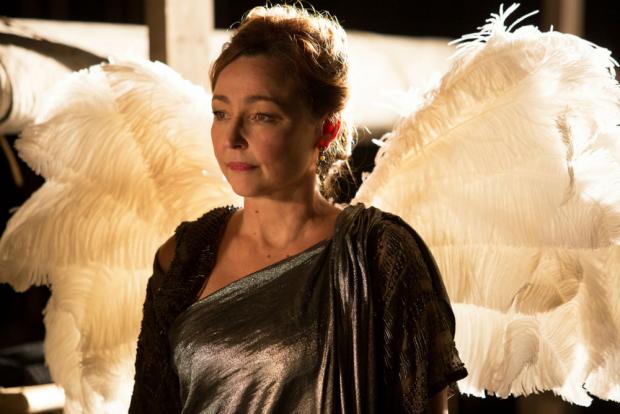Marguerite: Those Who Can’t, But Do
No amount of autotune could have helped the singing of Florence Foster Jenkins, once infamous for a singing voice that attacked opera with a lack of just about every quality of a trained singer, with the possible exception of volume. An heiress who mostly staged private performances in Manhattan, she had the taste to appreciate the finer works of the operatic canon, yet entirely lacked the self-awareness to understand how ill-suited she was to perform them. Many a seasoned coloratura would hesitate to tackle the Queen of the Night’s aria from Mozart’s The Magic Flute, but Jenkins did. She even recorded it, which is why we remember her today: It continues to horrify listeners seven decades after her death.
Meryl Streep will play Jenkins in a film directed by Stephen Frears to be release this summer. But Jenkins was also the inspiration for Marguerite, a French drama that asks us to take a more sympathetic look (if not ear) at a woman so desperate to perform.
Writer-director Xavier Giannoli kept only the most basic parts of Jenkins’s story for his character, here named Marguerite Dumont. (Apparently no reference is intended to Margaret Dumont, the actress who will forever be remembered as Groucho Marx’s foil.) The film is set in 1920, as France is trying to get back on its feet after the first World War. The fiftyish Marguerite (ten-time Cesar nominee Catherine Frot, who won Best Actress here) is the patroness of a music club that puts on performances featuring rising young stars, for which reason they are willing to sit though her tone-deaf singing as well. Because she is a good-hearted and generous soul, no one quite has the heart to give her an honest assessment. A young journalist covering Marguerite’s latest appearance calls it “a very personal rendition” from “this unique artist” who “seemed to be trying to exorcise an inner demon.” All true enough, if not in the way that she takes it.
Marguerite is shown this write-up by her African manservant Madelbos (Denis Mpunga), who seems to have the same function as Erich von Stroheim did for Gloria Swanson in Sunset Boulevard. He makes sure she doesn’t see the other notices, the ones headlined “The Screeching Baroness” and “Poor Mozart.”
The notice she years for but never gets would come from her husband, the Baron (André Marcon). Their marriage was one of convenience: she got a title, he got working capital from her inheritance. As he guiltily tells his mistress, Marguerite is an embarrassment, but he can’t bring himself to tell her the truth. But as Marguerite gets lured into a public spotlight, it becomes inevitable that no number of protectors will be able to shield her from the truth any longer.
It is Giannoli and Frot’s shared accomplishment that we come to feel for this deluded woman, who loves music and her husband with a passion that is returned by neither. The film goes on longer than it should, bringing in more supporting characters than it knows what to do with. But that’s the only misstep that it makes. It remains to be seen whether Streep and Frears invest their version of this story with as much humanity.
Marguerite opens Friday at the Eastern Hills Cinema.

